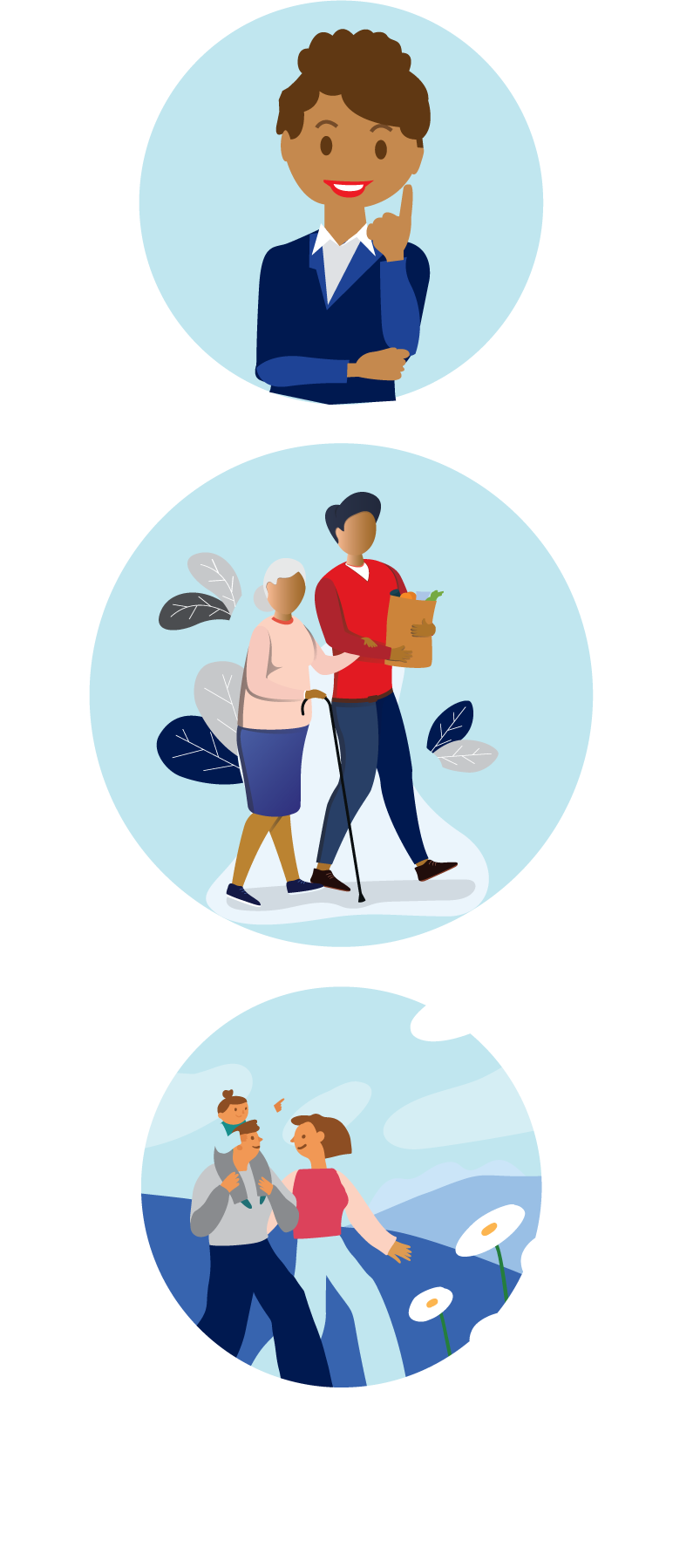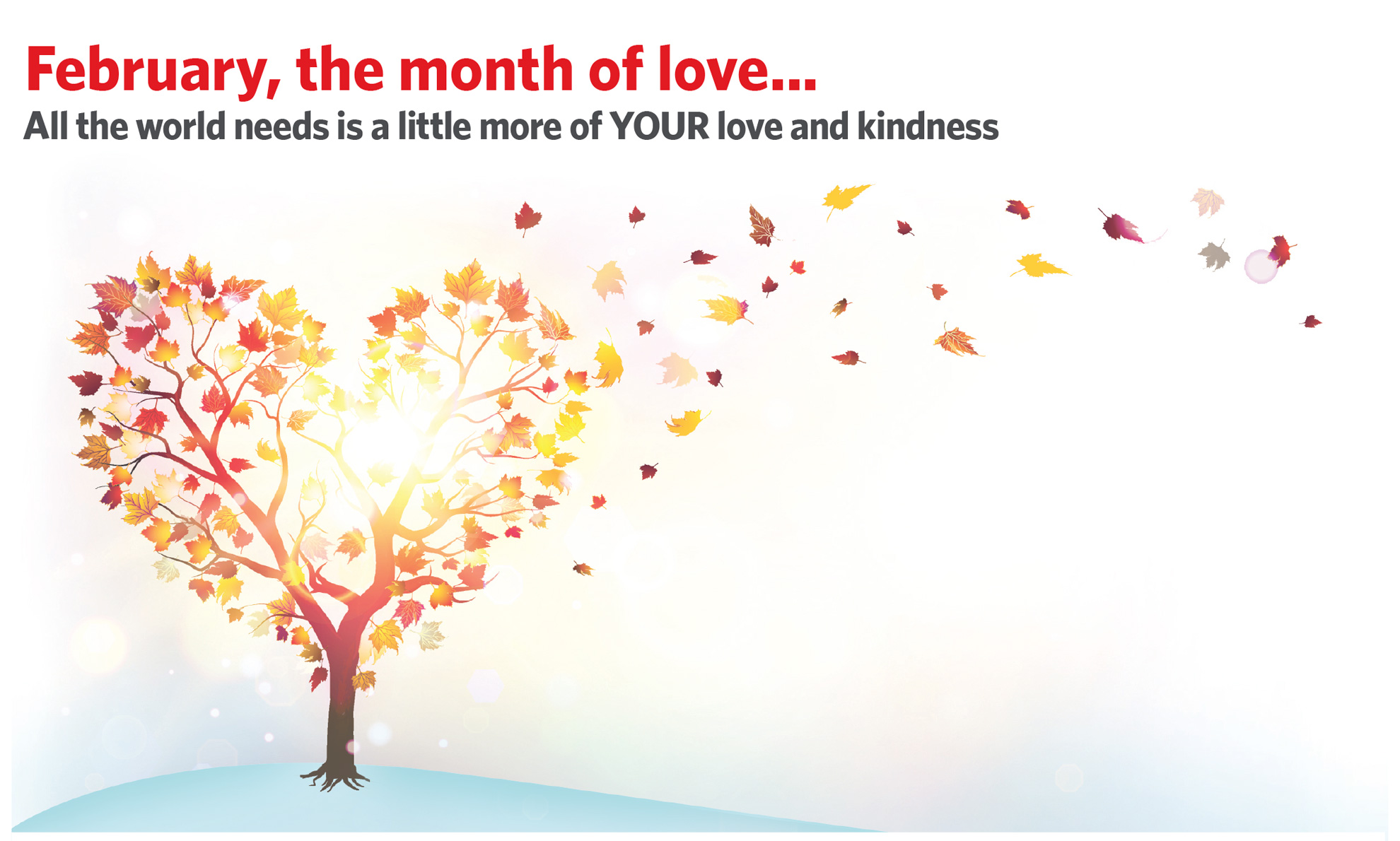All the world needs is a little more of your love and kindness
“Too often we underestimate the power of a touch, a smile, a kind word, a listening ear, an honest compliment, or the smallest act of caring, all of which have the potential to turn a life around.” – Leo Buscaglia, 1924 – 1998
We all long to be loved and appreciated, and since we also feel so much joy when we show love and kindness, let’s do more of it! Love is not just romantic love, love is about deep caring – it’s about including those loved in your life. Have you heard of the ‘Emotional Bank Account’? This account works in a similar way as a money bank account, but in this account you deposit and withdraw kindness and care, and in this special exchange build trusting relationships.
So, an emotional bank account is an account of trust rather than money, it is based on how safe you feel with another person. This idea was developed by Stephen Covey and described in his best-selling book ‘The Seven Habits of Highly Effective People’.
Ways to build up deposits include:
- Developing understanding: Show people that you are interested to understand them by listening to them carefully and empathising with how they feel. Once you understand them better, you are more likely to act with kindness towards them.
- Keeping promises and commitments: Being on time, and doing what you say you will do, helps to build trust and an emotional reserve with that person.
- Clarifying expectations: When you clearly explain what you expect, it helps a person feel more secure and confident, and hence more trusting. When we feel free to ask for what we want, and receive a positive response, that’s when trust is built.
- Doing the ‘Little Things’: A smile, a warm gesture, holding a door open, offering assistance, doing things you do not have to do; all these show respect and give the person a feeling of ‘being seen’.
- Demonstrating your integrity. When your behaviour aligns with your expressed values and beliefs, it builds trust.
- Apologising when you have made a mistake: Remember, this is an account of withdrawals and deposits. Any wrongdoing will be a withdrawal from the account, but a heartfelt apology will go a long way to repairing any trust that was broken.
Stephen Covey says: ‘We will make mistakes; it’s part of life. But when you see you have violated a trust, by sincerely apologising we make a deposit to counteract the damage we have done. When your trust level is high, because you’ve made lots of deposits, communication is almost effortless. You can be yourself, and others will understand and appreciate you.
Then, when you make mistakes or offend someone unexpectedly, you draw on that reserve whilst the relationship still maintains a solid level of trust.
Conversely, when you are discourteous, disrespectful of others, interrupt others, speak sarcastically, or ignore others, your emotional bank account gets overdrawn, because you have jeopardised the trust level. When the trust level is low, you need to be very careful of what you say. When the account is depleted and trust is broken, it can be quite difficult for people to accept any ‘deposit’ from you as they try to rebuild the relationship. So nurture all your relationships with loving kindness.
Loving kindness ideas:
Showing love and kindness does not need to cost anything; actually it is likely to make you feel happier and more abundant; here are some further ideas:
- Find quotes about love and kindness and pin them up on your ‘Shout Out’ board or round your office. Better still, add a string or ribbon and go for a walk in the park, or down the road, attaching them to tree branches, fences, and windscreen wipers anywhere where they might bring a smile.
- Make yourself known to anyone elderly or vulnerable in your community so they know they have somewhere to turn when in need of help.
- While you are out in the park, with friends, family, loved ones, lie on your back in the grass and see how many heart shapes you can spot in the clouds

And here are more suggestions from the Kindness UK website:
- Send a ‘kind’ text to someone you know. This could be a ‘thank you’, ‘well wish’, ‘compliment’, ‘recollection of a kind deed’, or anything else ‘kind’!
- Say good morning to everyone on your way into work, and good bye on your way home
- Eat lunch with someone new
- Hold the door open for those behind you
- Sign up to the organ donor register
- Give someone a compliment – it can make their day, week, or year!
- Surprise your colleagues with a kind post-it note on their desk
- Volunteer at a soup kitchen
- Bring some treats for your colleagues
- Offer to buy a drink or some food for a homeless person
- Go through your possessions and donate items you no longer use to charity
- Become a pen friend to someone less fortunate than you
- Spend time with someone who might be lonely
- Help an elderly person with their shopping
- When paying for yourself, offer to pay for someone else’s too, e.g. in a coffee shop
- Join or set up a local community group with a view to getting to know your neighbours and increasing the sense of care and community in the area
- Write a blog about kindness in society
- Take the time to really listen to someone
- Donate blood
- Share positive posts on your social media pages
- Cook a meal for someone else – e.g. deliver a lasagne to a new mother
- Surprise a loved one with a kind note, e.g. in their lunch box
- Offer to return someone’s shopping trolley in the car park
- Write a note of encouragement and place it inside a book or magazine in a waiting room
- Write positive online reviews for places you have visited, or businesses where you have had a good experience
- Pay someone a compliment (in person and via social media)
- Wash a friend or family member’s car or bike
- Bake cakes, bring them to work, and request donations to your chosen charity in return for a slice
- Spend time to get to know your neighbours
- Let someone go ahead of you in the queue
- Pick out good causes on the internet and ‘like’ or ‘follow’ them
- Undertake a litter pick in your local area



